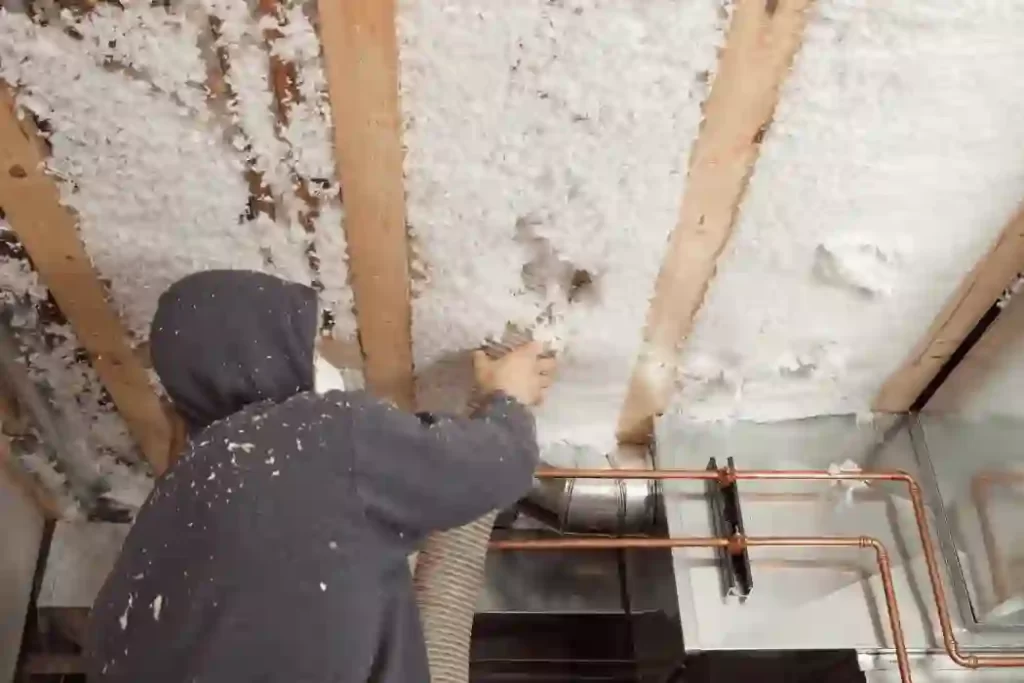Proper insulation installation is a critical aspect of creating a comfortable and energy-efficient living space. It involves the installation of materials in walls, roofs, floors, and other areas of a building to prevent heat transfer between the interior and exterior of the building. In this article, we will discuss the importance of proper insulation installation and the benefits it provides.
Energy Efficiency
The primary benefit of proper insulation installation is energy efficiency. Insulation reduces the amount of heat that flows through the walls, roof, and floor of a building. This means that less energy is required to maintain a comfortable temperature inside the building. As a result, the energy bills are reduced, and the building’s carbon footprint is minimized.
When insulation is not installed properly, gaps, and spaces may be left behind. These gaps can allow heat to escape, which can lead to increased energy bills. Proper insulation installation ensures that the building is adequately sealed and minimizes heat loss.
Comfort
Proper insulation installation also plays a crucial role in creating a comfortable living space. Insulation helps to maintain a consistent temperature inside the building, which means that occupants will feel comfortable throughout the day, regardless of the outside temperature. It also helps to reduce drafts and cold spots, creating an even temperature throughout the building.
Insulation can also help to reduce noise levels inside the building. It can absorb sound and reduce noise transmission from outside the building. This is particularly important in urban areas where external noise can be a significant issue.
During a home renovation, don’t overlook the importance of insulation installation. It plays a crucial role in optimizing energy efficiency and ensuring a comfortable living environment.

Health and Safety
Proper insulation installation can have health and safety benefits. Insulation can help to prevent the growth of mold and mildew inside the building. Mold and mildew can cause respiratory problems, particularly in people with allergies or asthma. Proper insulation installation can also reduce the risk of pests entering the building, which can carry disease and cause damage.
In addition, some insulation materials, such as fiberglass, can be harmful if not handled properly. Proper installation ensures that the insulation is installed safely and reduces the risk of exposure to harmful materials.
Durability
Proper insulation installation can also increase the durability of a building. Insulation can protect the building from moisture and other environmental factors that can cause damage over time. Moisture can cause wood to rot, and it can also cause metal to corrode. Proper insulation installation can prevent moisture from entering the building, reducing the risk of damage.
Insulation can also help to prevent temperature fluctuations, which can cause building materials to expand and contract. This can lead to cracks and other forms of damage. Proper insulation installation can help to maintain a consistent temperature, reducing the risk of damage.
Increased Property Value
Proper insulation installation can increase the value of a property. Energy-efficient buildings are becoming increasingly popular, and many buyers are willing to pay more for a building that is energy efficient. Proper insulation installation can also increase the lifespan of the building, reducing the need for costly repairs in the future.
Environmental Benefits
Proper insulation installation has significant environmental benefits. Energy-efficient buildings reduce the demand for energy, which means that fewer fossil fuels need to be burned to produce electricity. This reduces greenhouse gas emissions and helps to mitigate climate change.
In addition, many insulation materials are made from renewable resources, such as cellulose and sheep’s wool. These materials have a lower environmental impact than traditional insulation materials, such as fiberglass.
Conclusion
Proper insulation installation is a critical aspect of creating a comfortable, energy-efficient, and healthy living space. It provides numerous benefits, including energy efficiency, comfort, health and safety, durability, increased property value, and environmental benefits. It is important to ensure that insulation is installed correctly to maximize these benefits and to avoid potential problems in the future.

